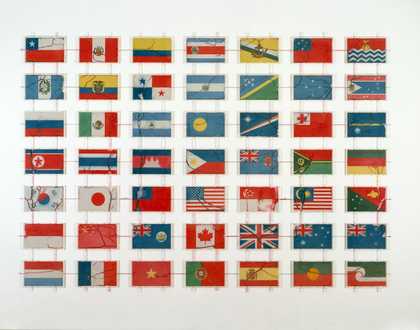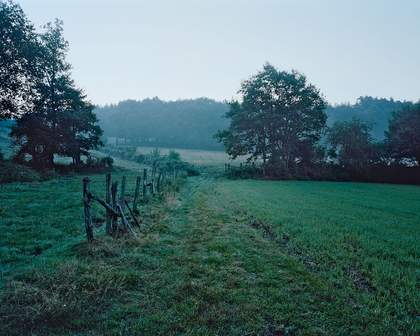Join artists and researchers from Queen Mary University of London as we think together about the role of objects in the production, conservation and recollection of our individual memories, and those of our communities. A particular focus will be migrant and refugee art, and the challenges of producing and conserving a home and identity in circumstances of displacement.
Explore questions such as what does the ‘making’ in placemaking actually involve? What is the role of sensuality in the making of memories? How can digital technologies of mass production coexist with artisanal modes of making, and what is their relation to the production of cultural heritage?
Drop in to explore installations and exhibitions which will be on display daily or join us for a series of events and activities over our five day residency at Tate Exchange.
Displays (open every day):
Recordings from the Xingu
Enter our oca and embark on a journey to the Ipatse Village, home of the Kuikuro indigenous people in the Xingu region of Brazil. See photographs and listen to ambisonic sound recordings of the community's daily life and traditions, and watch a video fly-through of scan data from around the Ipatse village, produced by Factum Foundation. The display will include a Virtual Reality installation by Brazilian coder Clelio de Paula about his residency in the Xingu (Sunday only, from 1-5pm).
Alda Terracciano’s Zelige Door on Golborne Road
Drop in and experience this interactive, multisensory installation which explores various aspects of Moroccan heritage and culture, each requiring a different sense to be experienced. It uses Augmented Reality and technologies related to the senses, to construct a living museum of cultural memories that reflects both the challenges of gentrification, and communal visions of a utopian space within the city.
- Globe: Here Be Dragons and Fertig
Globe, on display in Tate Exchange, is a copper sphere housing four cameras. Artist Janetka Platun rolled Globe through the streets of East London recording journeys and conversations with the public about home and migration, territory and boundaries. The footage inspired two films: Here Be Dragons (27 mins) and Fertig (6 mins), which will be screened on a loop in the space.
Ink drawings by Sophie Herxheimer
Explore a display of ink drawings by artist Sophie Herxheimer which document the experiences of refugees.
Screenings, discussion and workshops
Add your story to Alda Terracciano's evolving work on London Memory Routes.
Explore the theme of belonging through conversation and activities with artist Janetka Platun.
Join artist Sophie Herxheimer for a story collecting workshop and celebrate the new issue of Wasafiri Magazine with an evening of live literature.
Focusing on the needs of young people, join us for discussions and workshops exploring how spaces for participation and creativity can be produced.
Drop in for a map-making workshop inspired by the maps created by refugees to navigate their environments.
Come along to a screening of this powerful documentary about young Afghan refugees in Greece who transform discarded lifeboats and lifejackets into bags.
Drop in for a day of events exploring the Kuikuro indigenous people’s project to record and preserve the cultural heritage of their village in the Mato Grosso region of Brazil.
About Queen Mary University of London
Queen Mary University of London is a global university which is committed, through its recruitment, teaching, and public engagement activities, to enhancing the lives of the people of east London and beyond. Our collaborative projects with community organisations focus on building resilience, inviting reflection on shared challenges, and encouraging community cohesion in one of the most diverse areas of the UK. Queen Mary has a long history of working with arts and culture to benefit local communities and address complex global challenges. The People’s Palace, opened by Queen Victoria in 1887, was originally a community venue where people of the East End could enjoy dance classes, organ recitals, donkey shows and art exhibitions, as well as gain skills in what are now known as the ‘creative industries’ – tailor’s cutting, woodwork, photography, and needlework. Today, QMUL continues to harness the radical power of art to change the world. Our arts and cultural activities embody Queen Mary's values of diversity, inclusion, and community engagement.


